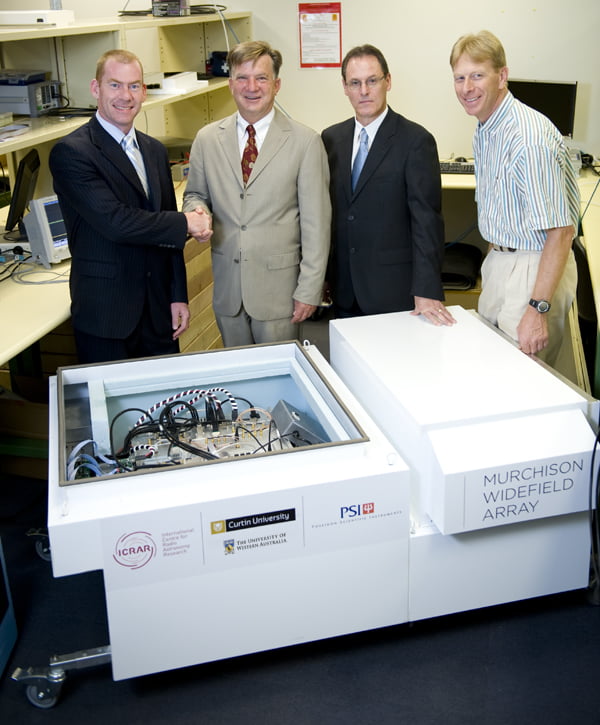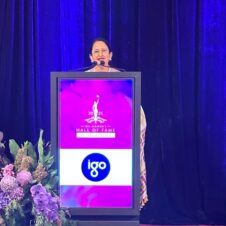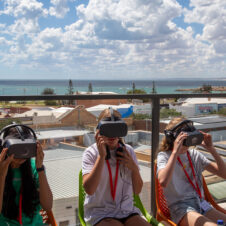MWA partnership puts local industry on the map
Scientists and industry seek the first stars and galaxies.
ICRAR has taken delivery from Poseidon Scientific Instruments in Fremantle, Western Australia of a production-ready receiver for the Murchison Widefield Array (MWA).

The MWA Receiver with Professor Steven Tingay (ICRAR), Jesse H Searls (PSI), Derek Carroll (PSI), and Mark Waterson (ICRAR). Credit: ICRAR.
A quest to discover the first stars and galaxies formed after the Big Bang is underway with the first major pieces of a revolutionary new radio telescope built in remote Western Australia.
The Murchison Wide-field Array (MWA) is being built by an Australian consortium led by The International Centre for Radio Astronomy Research (ICRAR), a joint venture between Curtin University and The University of Western Australia, in close collaboration with US and Indian partners.
MWA industry partner and Fremantle-based high-technology company, Poseidon Scientific Instruments (PSI), recently succeeded in packaging sensitive electronics into environmentally controlled enclosures tough enough to withstand the harsh conditions of outback WA.
Professor Steven Tingay, ICRAR Deputy Director, said PSI’s delivery of this first electronics package was a critical milestone for the MWA project.
“This is the first of 64 such enclosures that will service a telescope made up of over 500 antennas, spread over a nine square-kilometre area of the remote Murchison region in WA,” said Professor Tingay.
Professor Tingay said the innovative enclosure would also prevent electronics from interfering with other equipment on the site, preserving the uniquely quiet environment of the Murchison.
“The combination of the MWA and the radio quiet environment of the Murchison will allow us to search for the incredibly weak signals that come from the early stages in the evolution of the Universe, some 13 billion years ago,” he said.
The MWA is located at the Murchison Radio-astronomy Observatory, a site operated by the CSIRO and a proposed core site for the multi-billion dollar Square Kilometre Array (SKA).
It is one of only three official SKA Precursor telescopes, proving the technology and science on the path to the SKA.
One of ICRAR’s goals is to partner with Australian industries, helping position them to participate in future radio astronomy opportunities, such as the SKA. The MWA partnership with PSI is one such success story.
Contact: Professor Steven Tingay
Phone: 08 9266 3516 (steven.tingay@icrar.org)

